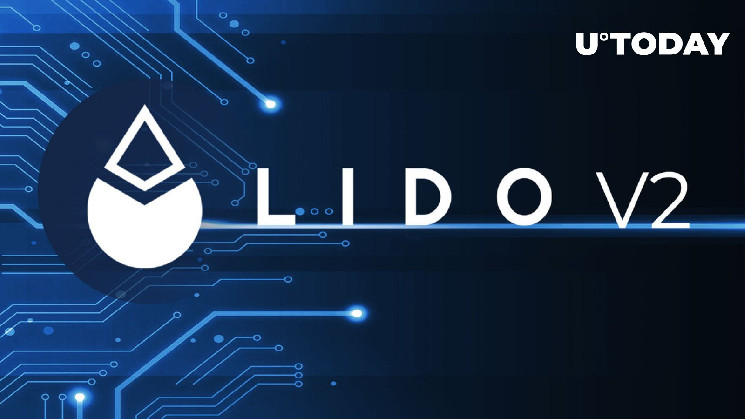In a significant move this week, Lido, a popular Ethereum staking platform, unleashed the second version of its platform, Lido V2, allowing users to withdraw Ethereum (ETH) directly. This noteworthy advancement, along with the further decentralization of its network, demonstrates Lido's strategic drive toward providing an optimally secure and user-friendly staking experience.
Lido V2's unique selling point is its enabling of in-protocol withdrawals, offering stakers a 1:1 withdrawal ratio. This crucial development comes into play in a landscape where Lido controls a substantial 76% share of all liquid staked Ethereum. This innovation might have a profound effect on how Ethereum staking operates, with a whopping 46% of all staked Ethereum currently placed with liquid staking derivatives (LSDs).
Over $10B of $ETH has been enabled to be withdrawn from @LidoFinance this week.
— Delphi Digital (@Delphi_Digital) May 17, 2023
Lido v2 enables in-protocol ETH withdrawals, along with further decentralization of the network.
Lido's v2 Future: An important breakdown 🧵⬇️ pic.twitter.com/OaKqodefxS
The LSD market operates in a way that is considered to be a "winner-take-all" model, where liquidity and network effects symbiotically drive a continuous cycle of expansion. With Lido currently leading the race, the decentralization of its platform becomes a paramount consideration not only for its future but also for the wider Ethereum ecosystem.
Lido has consistently prioritized decentralization, as reflected in its system of node operators. At present, Lido boasts a roster of 30 node operators, who have undergone a rigorous vetting process by the Lido team. Following this, these operators are approved through a governance vote involving Lido's own token (LDO) holders, before being entrusted with the responsibility of acting as validators for all ETH staked with Lido.
As Lido's V2 unfolds, it could shape the future of Ethereum staking, tipping the balance further toward decentralization. This, in turn, fortifies Ethereum's network security and mitigates risks of centralization, ensuring the preservation of Ethereum's ethos of decentralization while facilitating growth in the staking sector.
 u.today
u.today
